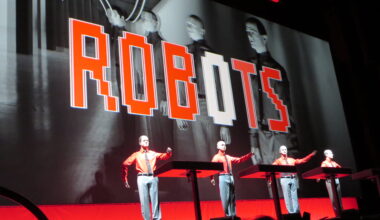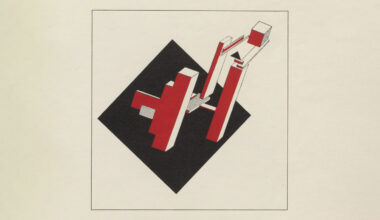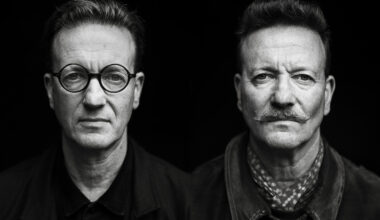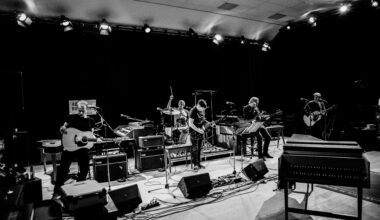It was only a matter of time before the freewheeling dub-inflected sound of Thievery Corporation spawned a full-blown reggae album. Please say hello to ‘The Temple Of I & I’…made in Jamaica to boot
Donald J Trump is hours away from being sworn in as the 45th President of the United States. Capitol Hill in Washington DC is busy. Busier than the liberal media claim (according to Trump’s press secretary) and much less populated than Barack Obama’s inaugurations according to the mainstream media. The arguments have already started. Millions of women are preparing to march the next day. The honeymoon is over. Right now, Washington DC is slap bang at the centre of the entire solar system.
Rob Garza of DC trip hop collective Thievery Corporation seems bemused, but not downcast by the crackpot circus playing out in his backyard. Currently residing in San Francisco, it is put to Garza that he’s missing out on all the fun back home. He laughs before pausing in thought. “American politics in general… how can I put this? I don’t have a particularly high opinion of it. That said, this is the nadir [laughs]. This takes it to a whole new other level. But all is not lost. Not by a long shot.”
Rob Garza and Eric Hilton formed Thievery Corporation back in 1995, the year that trip hop hits its own zenith with the likes of Portishead, Tricky, Leftfield, Moloko and Massive Attack all releasing significant long players as hip hop, dub and techno fooled around with a brooding sense of noir. For Thievery Corporation, the timing was perfect and their debut album ‘Sounds From The Thievery Hi-Fi’ followed a year later. A rich mellow sound that melded West Indian, Brazilian and Indian sounds to an electronic ambience, it was met with some considerable warmth.
The next two decades saw Garza and Hilton put together 8 more Thievery albums as well as numerous mix albums, side projects and DJ bookings. If you were looking for an antidote to bad political karma, here was a band that would take you up, not down. For Thievery Corporation are essentially optimists, theirs a soulful trip touching upon social consciousness but with the paranoia and fear – often connected to this ’erb-influenced genre – firmly left at home.
That’s not to say that Thievery Corporation’s edge amounts to little more than whale-song ambience, scented candles and pan pipes. 2008’s ‘Radio Retaliation’, for example, dealt with the presidency of the burnished-by-recent-events George W Bush, but the messages never got in the way of the groove.
“They seemed like, you know, desperate times,” says Garza, “and they were. In 2005, we lent a hand with Operation Ceasefire to help stop the war in Iraq. Let’s put it this way: if you’re an artist, then these are the most essential times to speak up. Something culturally significant can come of what’s happening right now. We are political and our music addresses issues, but we never really got into the whole ‘vote for this guy’ stance. We’ve always been a little more globally conscious with our thoughts.
“Musically we try to stir up the cultural melting pot in a way that hopefully activates people; especially the liberal class, which has a reputation for being a little passive. It has got to the point where, when dealing with another group that is highly combative, that we can no longer stay lying down on the floor while the other walks all over us. This situation is crazy now.”
Although a band with a wide open-door policy for cultural stimuli, Jamaican and Brazilian bossa nova are constants in Garza and Hilton’s work. The latest album ‘The Temple Of I & I’ is an all-out homage to the West Indian bass culture that has featured in so much of the Thievery canon.
“Jamaican music has always been an influence in what we do and the deep, echoey bass features in a lot of our music,” Garza explains. “That dubbyness forms the foundation of a lot of our stuff, as does bossa nova from Brazil. Previous records have been more electronic, but with that spacious, echoey dubbed-out thing going on, which was largely influenced by Jamaican sounds.”
The new album sparked into life after Eric decided not to return to the US after a vacation in Port Antonio.
“So… Eric was out in Jamaica on holiday in 2015 when I got the call,” says Rob. “‘Do you want to come out here and record an album?’. Well, that wasn’t something I was going to turn down and so I flew out to Port Antonio to get things moving. February is always a great time to be out there.”

It was back in DC that teenagers Rob and Eric first got turned on to Jamaican music. The Kilimanjaro Club was owned by Kenyan Victor Kibunja and it proved a beacon to many of the capital’s immigrants, particularly those from Africa and the West Indies.
“We would go there to see Scientist, Mad Professor and all these other legends of the dub scene as well ethnic sounds from all over the place,” Rob recalls. “We really got immersed into that Jamaican bass culture that really rattles your internal organs. It is not only an inspiration musically, but it’s also a rebellious sound. Eric and I would walk around record shops in Washington scavenging for dub tracks, as well as bossa nova, Bollywood soundtracks and loads more. Nothing was off limits, really. So, to go to Jamaica and record an album was something we had always talked about doing.”
Did recording a Jamaican album in its natural habitat represent any particular challenges?
“It was great. You just live the music there,” enthuses Rob. “We met so many wonderful people. The music just flows through you. There is a real local flavour and vibe there. A pulse. The people, the beach and the rum [laughs] made for an amazing experience. We went to so many bars and gigs at random places. The backyard parties were amazing. There was this whole roadblock thing going with an outdoor sound system, they would play hard dancehall, reggae and dub and then someone would drop Taylor Swift! It was crazy! The sounds just follow you around wherever you go, down there.
‘The Temple Of I & I’ features some regular collaborators, including their touring rhythm section who headed to Jamaica to lay down tracks in a more traditional manner, as well as new friends like the former Miss Jamaica Raquel Jones.
“She has this fierce vocal delivery, so powerful with a real rough edge,” says Rob. “It’s great to have her voice on the album and it provides a totally different vibe to what we’ve done before.”
Although the album has a potent Jamaican scent, particularly in the upbeat reggae of ‘Weapons Of Distraction’ and the dubby throb of ‘Thief Rockers’, some tracks are more heavily enriched than others.
‘Ghetto Matrix’ for example is more akin to the trip hop that forged the Thievery name; the electronica ebbing and flowing throughout. ‘Time + Space’ is a bubbling stream of multi-layered electronica with echoes of Jamaican drum patterns and a sublime female vocal courtesy of Lou Lou Ghelichkhani. ‘Love Has No Heart’ is similarly blissful.
“For many Jamaican music doesn’t seem inherently electronic,” explains Rob, “but that is exactly what it is. Dancehall is electronic. The keyboard, electronic drums and dub are forged from technology. Not forgetting hip hop that continued with that endeavour with the sampling and electro influences. Many dub pioneers were playing with studio techniques such as reverb and layering and this has always been a major inspiration to us.
“We’re electronic, but we’re not straight-up EDM. We just use a lot of electronic equipment. We use synths a lot as we scavenge for different sounds. We often go back to the Korg MS-20 and MS2000, the Rhodes Chroma Polaris and Roland JP-8000. There is no set way in which we work. We split the duties, but they could change with each song. We’re both good at picking up an instrument and hitting some ideas, riffs and grooves. Then we layer things on top of each other as we start to think of the big picture. It’s by any means necessary, when we’re in the studio. We just grab whatever from wherever. Then we work the ideas more electronically, tripping it out more.”
Thievery Corporation has always been outward-looking, using as many languages in its vocals as it does globally-sourced sounds.
“We’re producers so we see no limit in genre or styles and that’s reflected in our record collections. We will try anything to get that sample: jazz, Bollywood, samba… We will pull out any old piece vinyl to find something cool. We have also worked with many different singers who have delivered vocals in numerous languages, including Italian, Portuguese, Spanish and French. We have recorded in 26 different languages I think. I hate the term ‘world music’, but there, I just used it [laughs]. It was a great honour to be able to work with people like David Byrne who brought a lot of this to our attention. Talking Heads were one of the most influential bands as I grew up and they certainly paved the way for our work with musical styles from all over.”
Get the print magazine bundled with limited edition, exclusive vinyl releases



Another notable Thievery collaboration was with Flaming Lips’ Wayne Coyne on the track ‘Marching The Hate Machines (Into The Sun)’, which featured on the fourth studio album, ‘The Cosmic Game’ in 2004. Then in 2009, Rob and Eric found an unlikely fan in Sir Paul McCartney.
“We were in DC when we got a call asking us to open up for Paul at FedEx Field in DC. ‘Paul just loves your music and would like to meet you,’ his people told us. That was pretty surreal. What do you even say to this guy? ‘Hello Paul, I really like your music’?! He was great, though and we got to invite our parents along, which in a personal way, validated all these years doing music. It was nice to take them to one of our hometown shows featuring a former Beatle.”
With Jamaica addressed square-on on with ‘Temple Of I & I’, where next for the Corporation?
“I would love to do some more Brazilian music. It has been such a big influence on me. I would love to record in Rio. It’s so much fun immersing ourselves in one particular sound. It would also be cool to work in India. Brazil and India are two places I could think of, right off the top of my head.”
‘The Temple Of I & I’ is out on ESL






